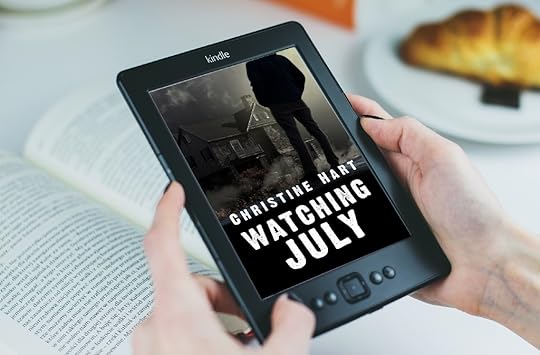Self-re-publishing an Out-of-print Title
 Background Photo: pexels.com / Cover Art: ivanzanchetta.com
Background Photo: pexels.com / Cover Art: ivanzanchetta.comAn author’s first novel is often compared to a first baby. I have mixed feelings about this myself, not just as a writer, but as a mother.
Still, there is one major similarity; the arrival of that first book almost always produces moments of pure pride and surges of excitement frozen in the author’s memory.
For almost all of us who write and publish fiction with traditional publishers, the day will come when that first novel goes out of print. What does that mean? The easy answer is that your publisher will not be producing new printed copies of your book. The more complicated (and somewhat painful) subtext is that your book didn’t sell well enough to warrant continued printing.
In the case of a title that only ever came out in print, going out of print would be the death rattle for your book. Only a dedicated fan willing to scan the shelves at used book stores would ever find your work again. Tragic, right? Websites like AbeBooks.com came along during the Internet boom and made it a bit less painful to hear the words “out of print”, but the decision was by no means good news.
Watching July was published in 2008, long after used books could be found online, but a few years before eBooks had become a standard offering. I didn’t know much about AbeBooks, eBooks, or the world of publishing in general in 2008. I was 29 and I worked as a communications specialist. I had very little fiction experience. I did not expect the book to sell well. I had no idea how to market a book or myself. That my book was accepted for professional publication and eventually turned up on bookshelves in Victoria (where I lived at the time) was more than I had ever expected to achieve with fiction.
Sensible authors are aware of the fact that most books fail. We do it anyway. Most manuscripts are rejected and of the select few that make it into print, most of those won’t sell very well or receive awards and critical acclaim.
To my shock and amazement, Watching July won a Moonbeam Gold Medal for mature issues in the YA category. I started to think I could actually write fiction. So I kept going with a few more books.
I hadn’t prepared for a career in fiction before, because I didn’t believe it was a viable option. (I’m still not sure it’s a sensible use of time.) Over time, I developed an understanding of what it takes to market books, and to present myself as an author.
I came to view my fiction work as a business. So I had more than a passing curiosity about how well my books were selling. I knew from a lack of reviews and the broad sales data Amazon provides to authors that the answer wasn’t going to impress me. I also noticed that Canada’s major bookseller, Chapters Indigo, had updated the publisher of Watching July to a house called Three O’Clock Press. Armed with the knowledge that the rights to Watching July had been sold to Canadian Scholars’ Press Inc. in 2009 when my original publisher Sumach Press had been acquired, I started trying to dig up information about sales and perhaps royalties.
I never did connect with anyone from Three O’Clock Press, but CSPI replied to let me know they had re-acquired the rights. Progress! However, Watching July hadn’t sold a copy in years and they would be shifting it out of print. Ouch! I hadn’t expected to dig up a large royalty cheque, but I really hadn’t expected my book baby to be orphaned. It’s not a great analogy. I’m just trying to convey the unhappy feeling of having a book rejected, again, even after you thought it had jumped through all the hoops. The one silver lining was that all rights reverted to me.
While self-re-training for the publishing landscape of 2016 and my first foray into the world of digital-first titles with The Variant Conspiracy, I learned how far self-publishing had come. Gone were the days of self-published authors being uniformly received as unprofessional and circumventing the competitive screening process that weeded out poor quality work.
I also read Arthur Slade’s experience re-publishing his novel Dust. I’m still not sure I’ll ever be ready to tackle self-publishing from start to finish. But publishing a book I already new was ready for market? That sounded like a baby step I could take. So I did.
The new edition of Watching July is now available in print via Createspace. The digital version is on Amazon and Kobo.
Will full control over content, pricing, and promotion prove to be something I want for future books? I’m still not sure.
But I was able to recapture some of that debut novel excitement. That alone was worth the price of admission to the world self-publishing.

Self-re-publishing an Out-of-print Title was originally published in The Fragile Receptacle on Medium, where people are continuing the conversation by highlighting and responding to this story.



